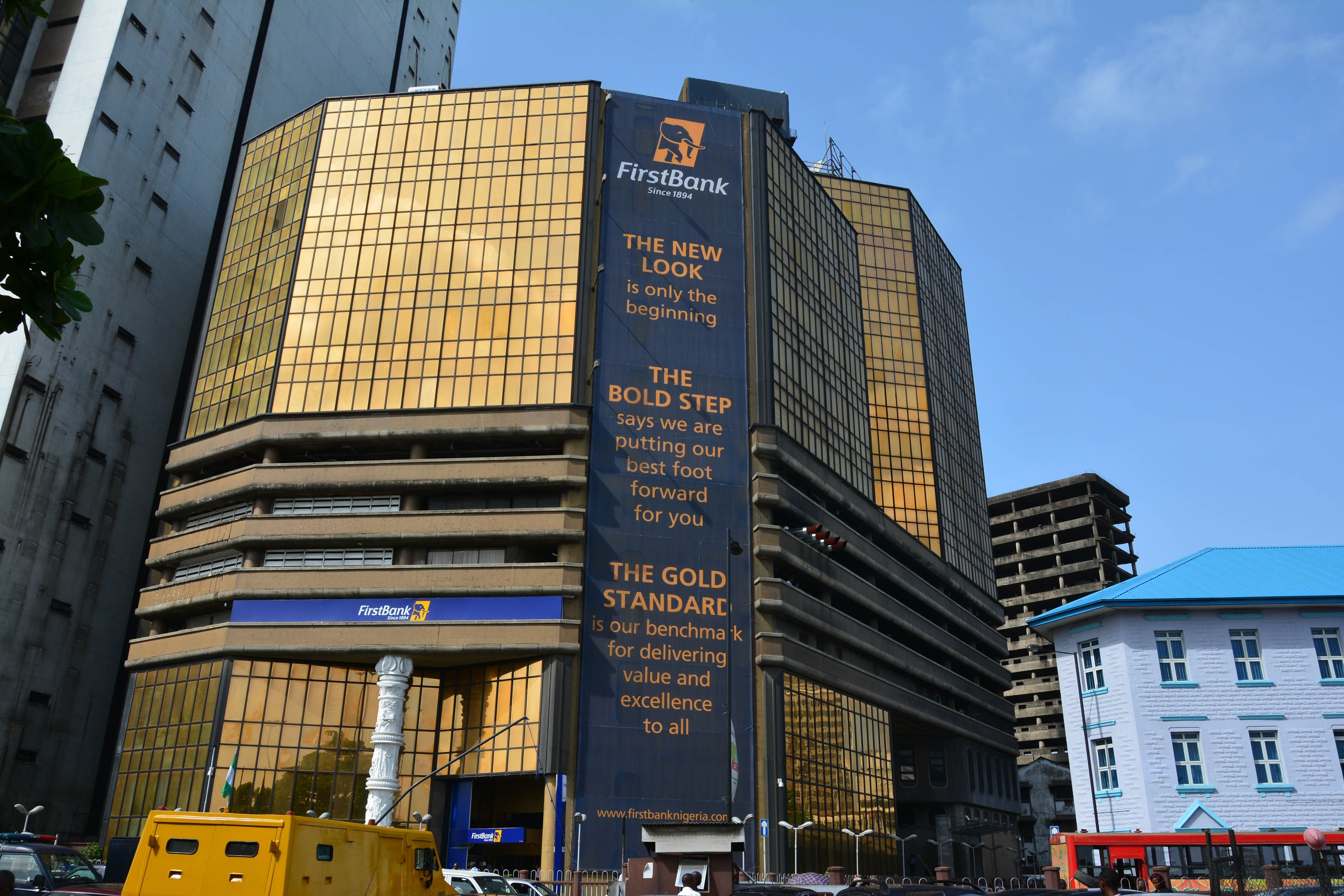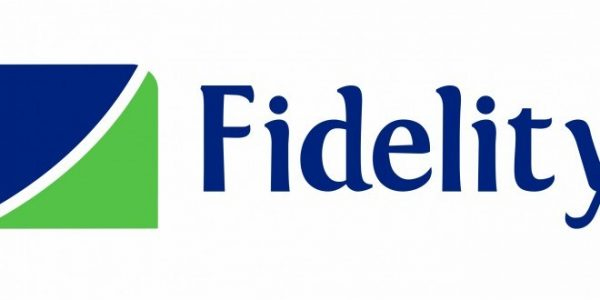Business
FirstBank Convenes SMECONNECT Webinar, Promotes Growth of Education Sector

First Bank of Nigeria Limited, Nigeria’s premier and leading financial inclusion services provider, has announced the convening of a Business Clinic to promote the growth and sustainability of the educational sector, especially in the light of the coronavirus which is having an adverse effect on the operations of schools across the world. The event is scheduled to hold via Zoom platform by 11:00am on Thursday, 23 July 2020.
“Managing Your School through the Pandemic: Engagement and Retention Strategies,” is the topic of the event and will be discussed by experts, leading players, policy influencers and proprietors in business and education management that have carved a niche for themselves at promoting the growth of education and business, towards impacting the national economy. To participate in the event, follow the link https://smeconnect.
The panellists at the event include; Mrs Folasade Adefisayo, Honourable Commissioner of Education, Lagos State; Otunba Yomi Otubela, President, National Association of Proprietors of Private Schools (NAPPS); Wale Abioye, Team Lead, Customer Practice in Management Consulting (KPMG); Babatunde Vaughan, Education Lead, Modern Classroom Microsoft Nigeria; Tinu Aluko, Proprietor, Busy Bee & West Mills and Bankole Adediran, Head Transaction Banking Products, First Bank of Nigeria Limited.
Speaking on the event, Mr. Gbenga Shobo, Deputy Managing Director, FirstBank said “the education sector remains the bedrock of the growth and development of any nation – without a viable educational system, the human capital would be incapable of driving national growth and development. FirstBank is delighted to convene this event as it reinforces our leading role at enabling the growth of the educational sector in the country, over the years.
A recent example is the current pandemic in which the Bank has spearheaded the continued learning of school children, with a view to moving over 1 million Nigerians to e-learning, an exciting journey that has had over 45,000 active participants on the respective platforms, notably Roducate and IBM.
We appreciate the panellists invited to speak and we look forward to the knowledge and ideas that would be deliberated towards having participants enlightened on essential activities to not just sustain their schools but reinforce its growth against the odds of COVID-19. We implore players, policy influencers, school and business owners as a whole to register and participate in the event because indeed there is knowledge for everyone,” he concluded.
FirstBank has held various SME clinics in the course of the year, including a virtual event to ensure Social Distance is adhered to in this sensitive period of the COVID-19.
These events include the SME Clinics in Lagos, Port Harcourt, Abuja as well as the Virtual SME Clinic, recently held in May.
Business
Fidelity Bank Champions Tree Planting Initiative at Lagos Beach

Fidelity Bank Plc, a leading financial institution, has partnered with Greenfingers Wildlife Initiative to plant trees at Elegushi Beach, Lekki, in Lagos.
Speaking during the event, Dr Meksley Nwagboh, the Divisional Head, Brand and Communications of Fidelity Bank Plc, highlighted the bank’s resolve to consistently champion initiatives that preserve the environment and reduce the impact of climate change.
“Environmental preservation is a key Corporate Social Responsibility (CSR) pillar for us at Fidelity Bank. We believe that protecting the earth is a shared responsibility.
“That is why this initiative is not a one-time activity, but part of our ongoing efforts to promote sustainable best practices.
“We are committed to ensuring that our environment, including marine habitats, remains protected from pollution and degradation,” Nwagboh said.
In addition to planting trees, the Fidelity Bank team also conducted a beach clean-up exercise to remove waste materials from the shoreline and surrounding marine areas.
Nwagboh noted that the bank continues to support environmental conservation through various initiatives nationwide and remains a proud partner of the Nigerian Conservation Foundation (NCF).
“Tree planting is an integral part of our climate action and resilience plan, and our goal is to consistently expand our environment-friendly operations.
“We are delighted for this partnership with Greenfingers Wildlife Initiative. It is one we intend to nurture, as we believe there’s more to be done to protect our environment,” Nwagboh added.
In his speech, Mr Chinedu Mogbo, the Founder of Greenfingers Wildlife Initiative, commended Fidelity Bank for its proactive commitment to environmental sustainability.
He explained that the partnership aligns with the NGO’s mission to foster safer, cleaner environments for both humans and wildlife.
“Our partnership with Fidelity Bank is driven by a shared mission to create a safer, greener environment for both humans and wildlife. Beyond enhancing environmental safety, planting trees contributes to beautifying our surroundings and restoring balance to nature,” Mogbo stated.
The exercise marks another significant step in Fidelity Bank’s environmental CSR efforts aimed at promoting sustainable living across communities, combating climate change, protecting biodiversity, and conserving aquatic ecosystems.
Ranked among the best banks in Nigeria, Fidelity Bank Plc is a full-fledged Commercial Deposit Money Bank serving over 9.1 million customers through digital banking channels. The bank has 255 business offices in Nigeria and United Kingdom subsidiary, FidBank UK Limited.
Business
Digital Banking: Unity Bank Unveils Enhanced Unifi Mobile App

Nigeria’s retail lender, Unity Bank Plc, has launched an upgraded version of its mobile banking platform, Unifi, as part of ongoing efforts to improve customer experience on the Bank’s digital Banking platform and reinforce its proposition in ebusiness.
The latest update, Unifi version 2.3, introduces a suite of improved features designed to enhance usability, security, and convenience for customers. Key upgrades include enhanced security protocols, expanded quick-action functionalities, improved bill payment options, and an updated Nigeria Quick Response (NQR) feature to support faster and more secure QR code transactions.
A key aspect of the rollout builds on the Bank’s continued investment in digital and security infrastructure, aimed at safeguarding customer data, ensuring secure payments and enabling safe, real-time transactions across channels.
Speaking on the upgrade, Adenike Abimbola, Divisional Head, Retail, SME, Digital Banking & Fintech Partnerships at Unity Bank, said the improvements are built on the back of continuous interrogation of the platform to be more responsive to customer feedbacks which are being received overtime in our interactions and engagements.
“Digital banking has become an integral part of everyday life, particularly for retail customers who expect speed, dependability, convenience, and security as standard. With the latest upgrade to Unifi, we are responding directly to these expectations by enhancing functionality, strengthening security, and simplifying key payment and transaction journeys. Our goal is to ensure that customers can carry out their banking activities seamlessly, confidently, and without friction, anytime and anywhere.”
She added that the Bank remains committed to continuous improvement of its digital channels in line with evolving customer needs and emerging industry trends.
“As mobile banking increasingly defines how people interact with financial services, Unifi is central to our strategy of delivering intuitive, reliable, and inclusive digital solutions. We will continue to invest in technology partnerships and platform enhancements that support financial inclusion, drive adoption, and improve overall customer experience.”
Originally introduced as part of Unity Bank’s strategic push to expand its retail footprint, particularly among young and digitally savvy customers, Unifi has grown into a core engine of the Bank’s retail banking expansion. The platform plays a critical role in driving customer acquisition, deepening engagement, and reinforcing Unity Bank’s broader digital transformation agenda.
The Unifi mobile app is available for download on Android and iOS devices, offering customers access to a wide range of services, including transfers, bill payments, airtime purchases, and QR-enabled transactions.
Business
Unity Bank Disburses N270m to Corpreneurship Winners

Unity Bank Plc has disbursed over N270 million in grants to young Nigerian entrepreneurs under its Youth Entrepreneurship Development Initiative: Corpreneurship Challenge, bringing the total number of beneficiaries since inception in 2019 to 608 corps members nationwide.
The initiative, implemented in partnership with the National Youth Service Corps (NYSC) through its Skill Acquisition and Entrepreneurship Development (SAED) programme, continues to equip fresh graduates with the funding, confidence, and support required to launch and scale viable businesses.
In the most recent edition of the Corpreneurship Challenge, held between November 18 and December 9, 2025, across 10 NYSC orientation camps nationwide, 30 youth corps members emerged as winners during the Batch C, Stream I, 2025 exercise of the programme.
The latest beneficiaries were selected from orientation camps in Lagos, Delta, Kaduna, Jigawa, Kwara, Enugu, Abia, the Federal Capital Territory (FCT), Akwa Ibom, and Plateau (Jos), after pitching innovative business ideas across diverse sectors of the economy.
Unity Bank’s cumulative investment in the Corpreneurship Challenge underscores the Bank’s long-standing commitment to youth empowerment, MSME development, and job creation in Nigeria.
Speaking on the continued impact of the initiative, Unity Bank’s Divisional Head, Retail & SME, Mrs. Adenike Abimbola, reaffirmed the Bank’s belief in entrepreneurship as a catalyst for economic transformation.
“At Unity Bank, we recognise that entrepreneurship remains one of the most effective tools for tackling youth unemployment and driving inclusive economic growth. Through the Corpreneurship Challenge, we are not only providing financial support, but also instilling confidence in young graduates to transform viable ideas into sustainable businesses. Reaching over 600 beneficiaries since inception reinforces our belief in the immense potential of Nigeria’s youth,” she said.
Mrs. Abimbola further emphasised the programme’s role in strengthening Nigeria’s MSME ecosystem and creating long-term economic value.
“Small and medium-scale enterprises are the backbone of any resilient economy. By supporting corps members at the earliest stage of their entrepreneurial journey, we are helping to build businesses that can create jobs, stimulate local economies, and contribute meaningfully to national development. Our focus is on impact that goes beyond grants, impact that translates into lasting livelihoods,” she added.
The Corpreneurship Challenge provides a competitive platform where corps members pitch business ideas, assessed on originality, feasibility, market demand, scalability, and job-creation potential. Successful participants receive financial grants to kick-start or expand their ventures, alongside exposure to business guidance and mentorship.
Since its launch, the initiative has supported youth-led businesses across value chains, including fashion, agribusiness, food processing, creative services, manufacturing, and retail. Over the years, it has become an integral part of the NYSC experience, attracting thousands of applications annually and earning national recognition for its contribution to youth empowerment.
By sustaining and expanding the Corpreneurship Challenge, Unity Bank continues to reinforce its role as a strategic partner in Nigeria’s entrepreneurial and MSME development landscape.






